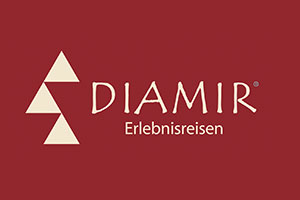South Sudan
Travel tips for south sudan
Top 5 Experiences
Africa’s youngest nation with a rich cultural heritage. Highlights include:

Boma National Park
As a relatively undiscovered destination, Boma offers a unique opportunity to explore pristine wilderness and contribute to the sustainable development of South Sudan.

Bandingilo National Park
Where vast savannas meet unique landscapes in South Sudan. Situated near the white nile this park is home to various species such as the giraffes, antelopes and hyenas.

Imatong Mountains
Offering unparalleled beauty and diverse landscapes, the Imatong Mountains stand as an ideal destination for adventure seekers, away from the crowds of mass tourism.

White Nile
Wer einen Einblick in die Lebensweise und kulturelle Vielfalt des Südsudans sucht, sollte das Mundari-Volk entlang des Weißen Nils besuchen, um mehr über ihre Traditionen und Bräuche zu erfahren.

Kidepo Game Reserve
With few tourists visiting the reserve, this park promises exclusive safari experiences in a tranquil and secluded setting. It is home to a variety of bird species.
Tourist Infrastructure
The optimal time to visit South Sudan is during the dry period, which extends from December to early February, while the landscape flourishes during the rainy season from March to November.
Climate and Travel Season
The infrastructure in South Sudan faces numerous challenges, yet careful travel planning allows for safe and positive exploration of the country’s beauty. Given the developing tourism infrastructure it is advised to book through a tour operator to ensure suitable and safe accommodation and transport throughout the stay.
Visa
For entry requirements and visa information, please refer to the website of your respective embassy. Links provided below.
Impressions from South Sudan
(Click to enlarge)
Stories
International Hotel Chains Are Driving the Hotel Boom in Africa
Frankfurt, 03 April 2024 - The "Big 5" of global hotel chains - Accor, Hilton, IHG, Marriott International and Radisson ...
Internationale Hotelketten treiben den Hotelboom in Afrika voran
ReThinking Africa Initiative setzt sich für Investitionen in Afrikas Tourismuswirtschaft ein Frankfurt, 03. April 2024. Die „Big 5“ der globalen Hotelketten ...
Voice4Africa x ReThinking Africa News March
KLEBER Group x ReThinking Africa News March 2024 Content Foreword Investment in Africa's tourism industry as a driver for sustainable ...
Our partners in Burundi
Visa, Entry, and Updates
Current accessibility
Corona precautionary measures
Status: 03.03.2022
















